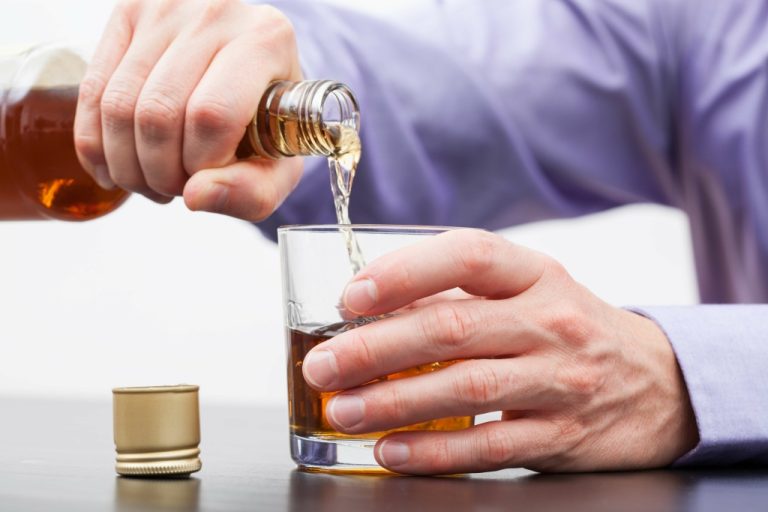What Do You Do When an Alcoholic Doesnt Want Help? FFI 30 enero, 2019 – Posted in: Forex Trading
Contents
What other medical condition would a family or friends of a person in need delay calling 911 or getting someone to a hospital? The answer is none because no other problem disrupts and changes the thinking of a family in the way alcoholism does. The longer you wait, the worse the alcoholic and the family system becomes. So whether the denial comes from actual drinking or the denial comes from ownership of the problem, the only recourse is to look at what is keeping them from seeing things differently. If they choose to stay the way they are, they have that right. Those connected to the alcoholic have an equal right to take care of themselves and make necessary decisions and changes that could encourage the alcoholic to look at things differently.
The translation is, enabling and waiting to do nothing makes it all about the other person in an unhealthy way. As a result, the family and the alcoholic become progressively worse. The quicker the alcoholic receives treatment and medical care, the greater the chances of recovery for both them and those affected. Additionally, assuming that someone needs to hit a dangerously low point in life before seeking addiction treatment suggests no other factors that may lead to their recovery process. A defiant addict is anyone who does not willingly seek out the treatment he or she needs. Overcoming those mental blocks and physical demands from drugs is never easy.
Alcohol Addiction Resources, Treatment, and Recovery in Palm Desert, CA
Addiction is treatable long before a person suffers to an unbearable point. So don’t wait to give them the help they so desperately need. An intervention may be the right course of action for an addict who is resistant to help. Mental health and wellness tips, our latest articles, resources and more.

However, an addicted person’s denial shouldn’t be your denial, too. Their distorted sense of reality should not affect the real situation. The best approach is to deal with the problem honestly and openly. The truth this, you have no control over your loved one nor the situation. Not even the addicted person can control their actions, even if they try.
Like an addiction to any substance, most alcoholics believe that everything but them is the problem. It is always someone else’s or some other thing’s fault that causes them to drink. Although you may not be able to directly control the alcoholic, you can work with professionals to identify changes that can be made to the alcoholic’s family and environment. This could and often does increase their chances of making changes and seeking treatment.
Be Prepared to Follow Through on Consequences
Offer to drive them to appointments or support them in certain life changes.If the person isn’t quite ready for help, make one offer, then wait for them to ask you. If you constantly offer help, the person may become off-put by you and your good intentions. If you don’t control codependency, it can lead into more serious complications such as obsessive behavior, blame, and mental health issues.

Put the focus on you and not on them, as this can cause guilt or shame. For example, instead of saying, “You’re destroying yourself and making bad decisions” say, “I don’t get to see you anymore, which makes me sad. I miss having you as a part alcohol tolerance may lead to damaging effects of my life.” Let the person know you are worried and are impacted by their drinking. Point out positive behaviors and steps forward the person makes, even if it doesn’t involve treatment. Stay positive in your interactions with the person.
Protect your children, and don’t hesitate to keep them away from someone who drinks and does not respect your boundaries. Growing up in an alcoholic home can leave lasting scars. Substance use disorder is a primary, chronic, and progressive disease that sometimes can be fatal. No matter your background or expertise, your loved one will likely need outside help.
Signs Your Loved One is Addicted to Drugs
Don’t cover up for your loved one or make excuses for their behavior. Your loved one may still refuse treatment afterward, but at least they should be more aware of the effects of their drinking on drinking too much alcohol can harm your health learn the facts those around them. Sometimes, you just need to walk away when you can no longer deal with your loved one’s AUD. You need to do what is best for you first and foremost before you can help them.
- These problems may interfere with their professional and social relationships or even their own health.
- Talking to an alcoholic about their problem, especially if you don’t have firsthand experience with addiction yourself, can be complicated.
- It is also essential to look after yourself and seek help if you experience mental health issues related to your loved one’s addiction.
- If appropriate, your loved one’s doctor may even prescribe medication approved to help treat alcohol dependence.
The person may be in denial, and they may even react angrily to your attempts. Give them time and space to make an honest decision, and listen to what they have to say. To get help for your loved one using alcohol, you can initiate change before the alcoholic or society does. In the event they are still unwilling to change, purpose and structure of oxford house the family can and should start their own recovery process as soon as possible. Learning how to change behaviors that affect the alcoholic’s path is a positive solution to starting the process of change and recovery. It’s important to know and acknowledge how extremely difficult this is for both you and your loved one.
Handling the Defiant Addict: When a Loved One Doesn’t Want Treatment
If the person is a danger to themselves or others, call emergency services immediately. If the person expresses interest in seeking treatment, offer to help them however you can. This article takes a detailed look at red wine and its health effects. Moderate amounts are very healthy, but too much can have devastating effects. Let the person know you’re there if they need someone to talk to. Be honest about your concerns and offer your support.
How do you know if you have permanent brain damage from alcohol?
Repeated blackouts, a clear sign of excessive drinking, can result in permanent damage that inhibits the brain from retaining new memories. For example, an individual may be able to recall past events with perfect clarity but not remember having the conversation a few hours later.
Those closest to the alcoholic should not continue their strategies or patterns of behavior that may be preventing the situation from improving. I will not pay for or help with phone bills, car payments, gas, etc. if you’re using drugs and alcohol. You cannot live in my home or get help with rent if you’re using alcohol and drugs. All Addiction Group content is medically reviewed or fact checked to ensure as much factual accuracy as possible. Addiction Therapy Options If you’re looking for addiction therapy, you’ll want to read…
Things You Can Do If Your Partner Is An Alcoholic
But here’s the thing, the alcoholic will pull on your heartstrings to get what they want. They know if Aunt Sally is loaded and can’t help herself. Yeah, that’s probably going straight into the cash register at the local liquor store. So when it comes to dealing with alcoholism, the actions we have to take feel counterintuitive.
How do you deal with someone drinking?
- Let Them Know What They're Doing. The first thing you should do is let the person know what they're doing and how it's affecting other people.
- Talk to Them When They're Sober.
- Keep Yourself Safe.
- Don't Leave Them Alone.
- Try to Get Them Help.
It’s easy to lose sight of yourself and your needs when dealing with an addicted loved one. An important way to help your loved one is to take care of yourself. You need to be strong for yourself and your loved one. Spending all of your energy worrying about them or trying to fix things for them will go nowhere and negatively impact your physical and mental health. Being addicted or loving an alcoholic or addict is devastating for everyone involved. Drug addiction and alcoholism affects everyone in its path.
Thinking About Rehab?
While many people can consume a mild or moderate amount of alcohol safely, alcohol is an addictive substance that can cause dependency. An alcohol dependency that becomes severe is called alcohol use disorder or AUD. Your teen should understand that drinking alcohol comes with specific consequences. But don’t make hollow threats or set rules that you cannot enforce. Don’t expect your loved one to overcome a drinking problem alone. Even if they don’t require medical supervision to withdraw safely, they’ll still need support, guidance, and new coping skills to quit or cut back on their drinking.
There are ways to effectively support your loved one to help encourage getting treatment for their alcohol use disorder. There can be times when families or friends will enable the addicted person to continue with their alcoholism. After you discuss your loved one’s addiction, the interventionist can paint a clear picture of what drug and alcohol treatment is like. Your loved one may have many misperceptions about what happens during drug and alcohol detox and in an addiction recovery program.
For example, a physician or someone else they trust can have an impact. We are standing by 24/7 to discuss your treatment options. Our representatives work solely for AAC and will discuss whether an AAC facility may be an option for you.

Nonprofit organization dedicated to providing free, evidence-based mental health and wellness resources. While it can be difficult to engage with someone who is resistant to help, don’t avoid the person, either. It may be easier to remove yourself from their life, but you may want to be available for when they are ready to talk. Healthline has strict sourcing guidelines and relies on peer-reviewed studies, academic research institutions, and medical associations. You can learn more about how we ensure our content is accurate and current by reading our editorial policy. Finding the right way to approach someone you think may have an alcohol use disorder can be tough.
